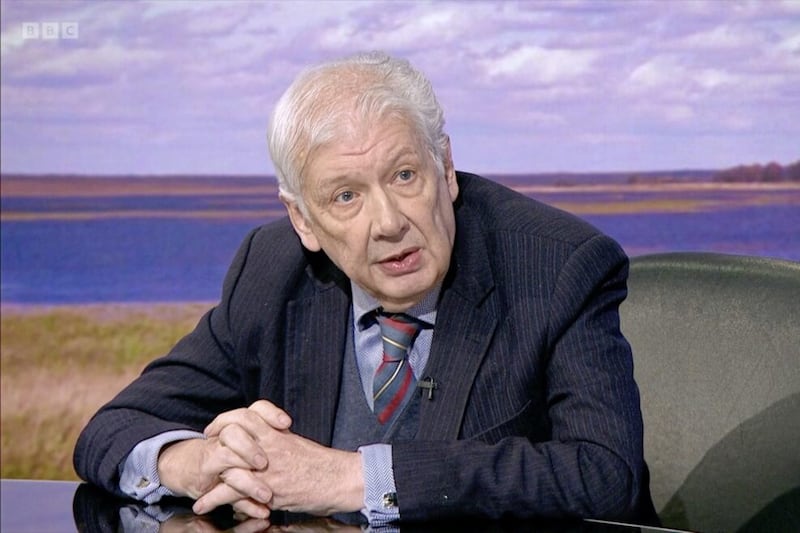The NHS turned 75 last week, a momentous landmark, and also a time for reflection. Is there really anything to celebrate? Since its inception in 1948 it has been admired across the globe and has been consistently named as one of the best healthcare systems in the world.
Opinion polls repeatedly show that the NHS is Britain's best loved institution, more highly regarded than the monarchy. The former Chancellor, Nigel Lawson, famously referred to it as the "national religion".
Today this jewel in the crown of post-war welfare reconstruction stands battered and bruised but has endured through periods of remarkable social change.
Whilst state housing and universal benefits have withered away, the principle of health care free at the point of delivery remains deeply engrained in the fabric of the UK.

Many contend that the NHS has simply become a victim of its own success. When it was founded life expectancy was 61 years, now it is over 80. Expectations have increased, demand exceeds supply, funding is limited, and services are well below desired standards.
Hospitals are stretched to breaking point, health care waiting lists have spiralled out of control and the undervalued, exhausted workforce are leaving in their droves. Years of neglect, underinvestment, and worsening staff shortages, combined with an ageing population and the burden of chronic illnesses, have left the NHS unable to perform its fundamental role adequately.
Read more:Why charging for prescriptions doesn't add up
Read more:If the DUP continue to boycott power-sharing, then the rules of engagement must be revised
By 2011, long-term gains in life expectancy had started to stall and since then a brutal decade of austerity has widened health inequality. The UK lags behind other countries in terms of health spending per person and capital investment in infrastructure.
The amount of time that people spend in poor health has increased, the gap in healthy life expectancy between the most and least deprived areas is now almost 20 years. The UK has a higher amount of preventable illness than comparable European countries.
Recently, a major study by the King's Fund involving 19 similar countries highlighted the extent to which the NHS was significantly underperforming. Patient outcomes are worse than average compared to peer countries, driven by below average survival rates for many cancers (including breast, cervix, colon, lung and stomach) and poorer outcomes from heart attacks and strokes. The report noted that the UK has "strikingly low" levels of key clinical staff and is heavily reliant on foreign-trained staff. It has relatively few hospital beds and far less diagnostic equipment.

People who clapped for the NHS during Covid are increasingly frustrated at a non-responsive, failing system. Inevitably there have been calls for a radical rethink of funding structures, with right-wing commentators erroneously arguing that an insurance-based system would be inherently better. Others suggest an increase in means-testing or a much larger role for private finance.
These are unnecessary distractions and the track record to-date of implementing major reform does little to inspire confidence.
The NHS does not need a new funding model; it is crying out for investment, long-term planning and political support to prevent people dying prematurely from disease.
The critical issue is not, however, about simply having more money – health is an avaricious user of resources. The key question is how money is spent.
The World Health Organisation has estimated that nearly half of all ill health in people over 60 is attributable to modifiable lifestyle factors such as obesity, smoking, poor diet, alcohol and a lack of exercise. Tackling the wider determinants of health is key to preventing illness in the first place and governments must show that they are serious about addressing these issues.
The focus must be shifted away from an illness service to a health service based on prevention and early intervention. The current system based around hospitals is centred around treating people when they are very unwell rather than keeping them healthy and disease free.
Even prior to the pandemic the amount spent on primary and community care was falling while budgets for hospitals had increased by almost two-thirds. This does not make sense on any level.
Conditions such as diabetes are best managed at home and domiciliary care is much more cost effective than care delivered in a clinical setting. It is the equivalent of buying more fire extinguishers while dismantling the smoke alarms. In a context where resources are finite and there are competing demands we have to ensure that we are delivering the best outcomes possible.
A health service is not simply about extending years of life, it is about the life in those years. Rather than discussing life expectancy, we should be discussing health expectancy. Ultimately the NHS can only do so much to keep people healthy; individuals and communities also play a key role.
Amidst unrelenting stories of collapse, failures and inability to access services in a timely fashion, it is important to stress that there is much to cherish and to celebrate. The NHS is nothing without its people. The doctors, nurses, physiotherapists, dieticians, pharmacists, occupational therapists and others are its greatest asset.
Long-term workforce planning is a prerequisite to a sustainable service. It is time that these medical professionals were supported with salary levels reflecting their value, and their knowledge and skills.
The NHS undoubtedly has problems, but it can be fixed. Seventy-five years ago, we hitched our star to the provision of universal, equitable, comprehensive, high-quality, centrally funded healthcare free and the point of delivery. Equality of care and equality of access are highly valued, and rightly so.
People in the UK still receive relatively good protection from the catastrophic costs of becoming ill, relatively few core NHS service are subject to charges and many groups of the population are exempt from fees.
However, the achievements of the NHS can only be maintained with political support and unrelenting commitment to its underpinning principles.








